By Jill Habig, Founder & President of Public Rights Project
California recently escalated its battle against the Trump administration’s efforts to intimidate immigrant communities by suing to block the Commerce Department’s plans to add a citizenship question to the Census. The case is the latest salvo in the fight between the administration and state and local governments over immigration enforcement, following U.S. Attorney General Jeff Sessions’ suit against California to invalidate the state’s laws limiting cooperation with U.S. Immigration and Customs Enforcement.
These developments follow months of legal wrangling in states and cities across the country, from Gary, Indiana, to El Cenizo, Texas. While California Gov. Jerry Brown has quipped that the Sessions lawsuit against California may just be an effort by Sessions to keep his job, it’s clear that just beneath the everyday chaos of the Trump administration is a quiet, efficient and effective plan to undermine the federal government’s historic role in ensuring equal protection under the law.
The Trump administration has upended federal civil rights protections from housing and policing to education and the workplace. The Department of Housing and Urban Development recently proposed a new mission statement that removed any reference to fighting discrimination. Rather than prosecuting police violence, the Justice Department’s official position is that too much oversight of police departments is the real problem. The Justice Department is transforming itself from a shield to protect the most vulnerable communities into a sword against them. The lawsuit against California is just the latest, most brazen salvo in an ongoing campaign.
So, what recourse do we have? The answer lies in state and local government. State attorneys general, district attorneys, county counsels and many city attorneys often have broad jurisdiction to address civil rights violations, and the harms caused by those violations are often felt most acutely at the local level.
States and cities have scored some huge civil rights wins in recent years. They have helped win marriage equality across the country and preserve the Affordable Care Act. They have blocked the “Muslim Ban” and protected sanctuary cities. They are leading the fight against the worst excesses of this administration.
But these headline-grabbing cases, while inspiring, are relatively few and far between. The real challenge is in the scores of other important cases that states and cities would love to bring, but cannot. Historically, the bulk of civil rights enforcement has come from the federal government, while state and local governments have comparatively little capacity to tackle these cases. This administration has exposed that division of resources as a flawed strategy: We have effectively subjected the rights of our most vulnerable communities to the whims of one election. While California officials—from the governor and attorney general to mayors and city attorneys across the state—use precious resources to fight this administration, our public law offices often lack the additional capacity to bring all the other cases the federal government is no longer pursuing. In this current climate, they need more support so that they can do both.
While this state and city action is more urgent today, the truth is that we have always needed them. Under the Obama administration, the federal government couldn’t investigate all the police departments in need of reform, nor could it protect consumers from all predatory businesses. We need to diversify our portfolio of civil rights investment across the country. We need to do more to bridge the gap between the values enshrined in our laws and the lived reality of our communities. And, we need a better pipeline to help talented, public interest-minded attorneys enter public service at the state and local level.
I know the power states and cities have to fight, and win, critical civil rights cases. As a legal fellow in the San Francisco City Attorney’s Office, I worked on the trial team that overturned Proposition 8 to bring marriage equality to the state. Years later, I helped build the Bureau of Children’s Justice in the Attorney General’s Office, a specialized unit dedicated to enforcing the civil rights of children. State and local law offices can make civil rights real for communities across the state when they have resources to do this work.
In the end, it’s the cities and states that will pick and win the important fights against the exclusionary policies represented by this administration. They can help bend the arc of the moral universe, even in these trying times, but only if we recognize this opportunity and provide the resources to help them in the fight.
Originally published via The National Law Journal




